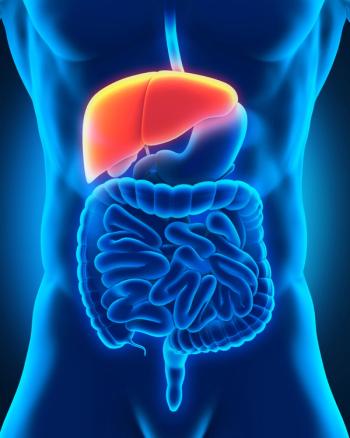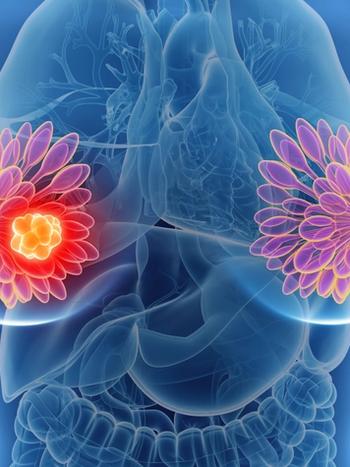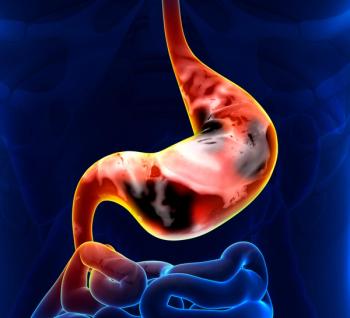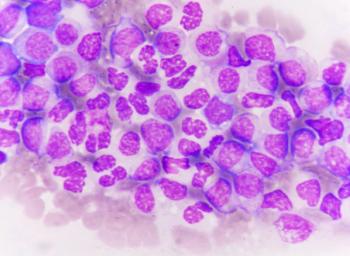
Findings from the phase 1b/2 TENACITY-01 trial, which is assessing CTD402 monotherapy in these hematologic malignancies, supported the agency’s decision.

Your AI-Trained Oncology Knowledge Connection!


Findings from the phase 1b/2 TENACITY-01 trial, which is assessing CTD402 monotherapy in these hematologic malignancies, supported the agency’s decision.

Adding ANPEP and PIGR to a biomarker blood panel of CA19-9 and THBS2 significantly improved the detection rate of any-stage pancreatic cancer.

Results of 9 patients with metastatic breast cancer dosed with Bria-IMT have shown sustained survival.

The FDA held a Type B meeting regarding the use of d3-T, a form of testosterone, and the risk of developing breast cancer in women.

Researchers have generated a high-resolution spatial atlas of the human gastrointestinal tract in aGVHD, revealing epithelial disruption and unexpected immune cell patterns that reshape how the disease is understood.

Findings from the phase 1/2 BRUIN trial support the Notice of Compliance with conditions for pirtobrutinib in this relapsed/refractory disease population.

Data from the phase 3 CEPHEUS trial support the approval of the daratumumab-based regimen among patients with newly diagnosed multiple myeloma.

Following 2 prior CRLs from the FDA for the rivoceranib plus camrelizumab regimen in frontline HCC, the developer has again submitted an NDA to the FDA.

Data from the phase 3 PEAK trial demonstrate that bezuclastinib plus sunitinib may be favorable vs sunitinib alone in certain patients with GISTs.

Paxalisib combined with pembrolizumab and chemotherapy showed preliminary activity in patients with metastatic triple-negative breast cancer.

Anbenitamab plus chemotherapy reduced the risk of progression or death by 75% vs chemotherapy alone in select patients with gastric cancer/gastroesophageal adenocarcinoma.

Investigators are currently assessing IBI3003 among patients with relapsed/refractory multiple myeloma in a phase 1/2 trial.

Researchers have found that engineering CAR T cells to target Tenascin-C, an extracellular matrix protein enriched in glioblastoma, can shrink tumors and prolong survival in preclinical brain tumor models while sparing healthy tissue.

Experts discuss new modalities such as HPV vaccines, balancing hope with realism, and other considerations in cervical cancer management.

A correlation between miR-93-5p and basal-like tumor features was observed among urinary samples of patients with bladder cancer.

Data from the ENDURE trial may contextualize prior evidence suggesting an interferon-related improvement in treatment-free remission rates in CML.

A phase 3 trial of iSCIB1+, a novel cancer vaccine, assessing patients with advanced melanoma has been cleared by the FDA.

Patients with cervical cancer with cachexia, sarcopenia, and malnutrition had higher mortality when receiving concurrent chemoradiotherapy.

The BC-RADS-2 study aimed to address diagnostic delays and cancer care disparities of patients with breast cancer in low- and middle-income countries.

Nathan Goodyear, MD, discussed key insights in integrative oncology care as well as evidence-based, patient-centric tools that may optimize QOL outcomes.

Zelenectide pevedotin demonstrated manageable safety among patients with advanced solid tumors in the phase 1/2 Duravelo-1 trial.

Findings show that age also represents an important driver for select pathologic genomic events differing at the presentation of disease by sex.

Data from a phase 1/2 trial support the FDA’s designation for WU-CART-007 in relapsed/refractory T-cell ALL and T-cell lymphoblastic lymphoma.

Data from a phase 2 study support metabolic response on PET/CT and ctDNA clearance as potential biomarkers for predicting event-free survival.

Soumen Das, MBBS, MS, FACS, discussed the BC-RADS-2 study and its potential to transform early breast cancer detection in low- and middle-income countries.

With a median follow-up of 6 months, the median OS was not yet reached in patients with recurrent glioblastoma with the nogapendekin alfa inbakicept-based regimen.

A total of 10.9% of patients experienced grade 5 AEs, yet no treatment-related deaths were reported with the nivolumab-based regimen in this HNSCC group.

Early safety and immunogenicity data may warrant further evaluation of iTAC-XS15-CLL01 among patients with chronic lymphocytic leukemia.

Data from the phase 3 BREAKWATER trial demonstrated that encorafenib plus cetuximab and chemotherapy yields clinical benefit for this patient population.

Experts cover the regulatory approvals and clinical trial readouts from 2025 that may move the needle for prostate cancer management.